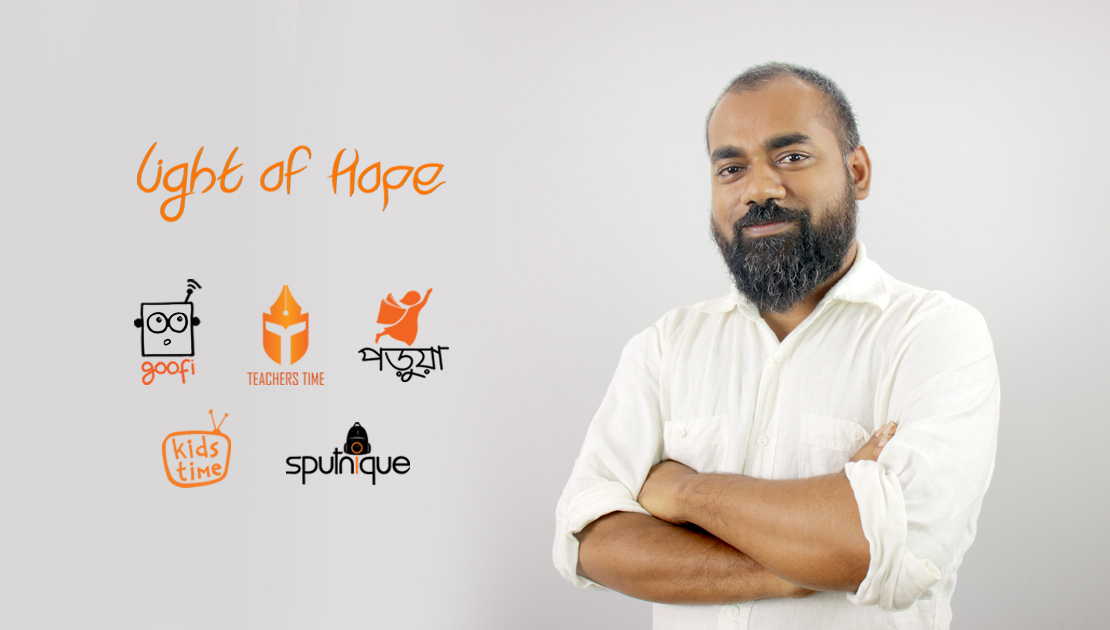

Light of Hope is a social enterprise working at the intersection of improving education for children in Bangladesh and beyond. Started in 2013, Light of Hope works with primary level schools to make education engaging, interesting and fun for children by offering innovative services.
It creates educational content, organizes events for children and parents and works with schools to establish libraries and fun environment for learning. It has also developed a low-cost and high-efficient solar-run multimedia classroom solution. The startup now has four brands namely Goofi, an online education content platform, Kids Time, after school program for school children, Sputnique, Portable Multimedia Classroom Setup, and Teachers Time, Teachers’ training platform.
Further reading: Read our overage of Light of Hope here along with two interviews with its CEO.

Since launching in mid-2017, Flight Expert has successfully positioned itself as a leading OTA in the country, from what began as a modest operation of a three people team. The company has now a team of over 40 people and enjoys a widespread brand awareness in the market.
Over the past months, it has assembled a team of creative first-timers and experienced industry insiders which has meaningfully helped Flight Expert position itself as a destination OTA for a growing number of people. It has recently expanded to Chattogram and aims to ride the wave of growing travel and tourism industry in the country.
Further Reading: Read our overage of Flight Expert here along with interviews with its CEO and CCO.

Lamudi Bangladesh, one of the active online property marketplaces in the country, celebrated the fifth year of operation in Dhaka this July. This internet-based real estate property finder, which has operations in 33 different countries around the globe, has maintained a low profile operation in Dhaka.
As it celebrates fifth year anniversary, the startup gives hints of its renewed growth push.
Further reading: Read Rahat’s take on Lamudi’s business in Bangladesh here

Styline Collection, the Dhaka-based modest fashion startup, has just opened its fourth retail store in Sylhet with an ambition to build a business at the intersection of online and offline. Founded in April 2015 by Khobaib Chowdhury, the startup went through Founder Institute, an accelerator program in Dhaka, then MaGIC, an accelerator program supported by Malaysian Government and grew quickly. It sells modest lifestyle products such as hijab, abayas, shrugs, inner caps, dress, and related accessories both online and now offline through its experience hubs in Dhaka, Chittagong, and Sylhet. In the last eleven months, Styline opened 4 outlets all over Bangladesh.
Of all these, the most important news about Styline is that it did not raise any venture money yet except for a couple of small friends and family rounds. It has remained a bootstrapping case.
Further reading: Read our coverage of Styline here along with interviews with its CEO.

Khaas Food, the Dhaka-based farm-to-table food company, started as a Facebook Page – taking orders online for a handful of food products such as Milk, Honey, and so on and delivering high-quality safe food to customers. Eventually, it launched a website and started taking orders there as well.
Over the past years, it has outgrown its Facebook page as well as its ecommerce company identity. Khaas Food says it plans to continue to grow as a food company.
Most companies that sell online tend to pay more attention to their digital identity. It is ecommerce which is more important for many of these companies which results in unexpected challenges as the market matures and big players continue to take up a bigger share of the market. Khaas Food wants to avoid this challenge. In an interview with Future Startup, Khaas Food Chairman, Habibul Mustafa, shared Khaas Food’s ambition to build an identity around safe food and its several investments in the space.
“We are more of a food company that an ecommerce company. And our goal is to play to that strength,” Habibul Mustafa said. “Our long-term plan is to establish a popular and reliable food business in which e-commerce will only be a distribution channel. To have control over our customers, we are trying to improve our distribution channels (e.g. e-commerce platform and physical outlet/warehouse) gradually.”
Further reading: Read our coverage of Khaas Food here along with interviews with its Chairman.
